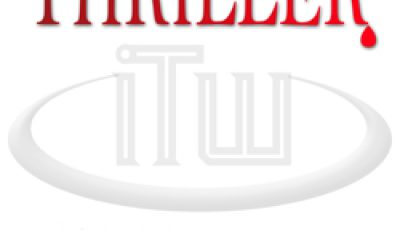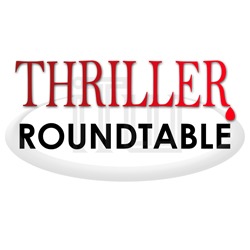

January 24-30: “Printed book, or e-reader? Why?”
E-readers are proliferating like dandelions in the spring. Do you own an e-reader? Are your print books available in electronic form? Do you prefer one form over the other? Join ITW members Joe Nassise, John Gilstrap, Karen Dionne, Bill Reed, Vicki Hinze, and Jim Duncan as they kick off this Thriller Roundtable discussion.
Joseph Nassise is the author of more than a dozen novels, including the internationally bestselling Templar Chronicles series.He’s a former president and trustee of the Horror Writers Association, the world’s largest organization of professional horror writers,and a two time Bram Stoker Award and International Horror Guild Award nominee.
John Gilstrap is the acclaimed author of five thrillers: SIX MINUTES TO FREEDOM, SCOTT FREE, EVEN STEVEN, AT ALL COSTS, and NATHAN’S RUN. His books have been translated into more than 20 languages. He lives in Fairfax, Virginia.
Karen Dionne is the internationally published author of Freezing Point, a science thriller nominated by RT Book Reviews as Best First Mystery of 2008. A second environmental thriller, Boiling Point, about an erupting volcano, a missing researcher, and a radical scheme to end global warming is forthcoming from Berkley December 28, 2010. Karen is cofounder of the online writers community Backspace, and organizes the Backspace Writers Conferences held in New York City every year. She serves on ITW’s board of directors as Vice President, Technology. She is also Managing Editor of the International Thriller Writers’ newsletter and webzine,The Big Thrill.
William Craig Reed served as a U.S. Navy diver, submarine fire control “weapons” technician and photographer for special operations on nuclear fast-attack submarines. Craig earned commendations for completing secret missions during the Cold War, and is an alumnus or member of several military, veteran, and technology associations. When not writing, Craig is a partner in Aventi Group—a technology marketing consulting firm (www.aventigroup.com). He was a former vice president and board director for the Silicon Valley American Marketing Association, founded two software companies and co-authored the book Tarzan, My Father with the late Johnny Weissmuller, Jr. Craig is the author of the thriller DNA and the non-fiction memoir Crazy Ivan: A True Story of Submarine Espionage. RED NOVEMBER: Inside the U.S. – Soviet Submarine War is Craig’s latest non-fiction thriller published in May 2010 by William Morrow/HarperCollins. Born into a Navy family on the island of Guam, Reed lives in Silicon Valley, CA.
Vicki Hinze is the award-winning author of 24 novels, 3 nonfiction books and hundreds of articles on craft, business and the writing life, published in as many as 63 countries.Her next release is DEADLY TIES, a faith-affirming thriller being published by Random House’s, Waterbrook-Multnomah.For more info visit her websites: www.vickihinze.com and vickihinzebooks.com.
J.N. Duncan, living and working away in the state of Ohio, is a writer of dark, urban-fantasy-suspense. His first novel, published by Kensington, will be out in April, 2011.
- LAST GIRL MISSING with K.L. Murphy - July 25, 2024
- CHILD OF DUST with Yigal Zur - July 25, 2024
- THE RAVENWOOD CONSPIRACY with Michael Siverling - July 19, 2024

